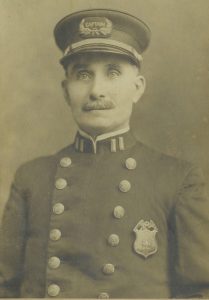New Jersey Employment Law Decision Examines Rights of Police Officers Facing Discipline in Non-Civil Service Jurisdictions
An appeals court recently issued an opinion in the case of Hand v. Borough of New Providence, examining the rights of New Jersey police officers facing discipline in non-civil service jurisdictions
Background
The opinion explained that Michael Hand was a corporal with the New Providence Police Department, with thirteen years of service. On May 17, 2019, he was eating dinner with his wife at a diner during a meal break when a call came for him to respond to a domestic incident. Another officer, Patrolman Lunch responded. Plaintiff texted Lynch and his supervisor to see if they needed him but they did not respond, so he did not go. The supervisor, Sergeant Diamond, who was not called, terminated a traffic stop to respond when he saw on GPS that Hand was not responding. At the scene, a juvenile experienced a mental health crisis and the situation escalated; Diamond called Hand on the radio and Hand then responded 13 minutes after the original call.
 New Jersey Lawyers Blog
New Jersey Lawyers Blog



 process to ensure that New Jersians are served by only the best law enforcement officers and firefighters.
process to ensure that New Jersians are served by only the best law enforcement officers and firefighters. reasonable accommodations so that disabled employees can perform their duties.
reasonable accommodations so that disabled employees can perform their duties. government employee with a clean disciplinary record would receive a lesser penalty for the same violation for which another employee with previous discipline would receive a harsher penalty. For example, an employee who was late for the first time might receive no discipline, while one who has been late fifty times in a year might be terminated. Even with first offenses, however, some infractions are so severe that major discipline, even termination, may be appropriate for a first offense.
government employee with a clean disciplinary record would receive a lesser penalty for the same violation for which another employee with previous discipline would receive a harsher penalty. For example, an employee who was late for the first time might receive no discipline, while one who has been late fifty times in a year might be terminated. Even with first offenses, however, some infractions are so severe that major discipline, even termination, may be appropriate for a first offense.

 this requirement. However, in the case of
this requirement. However, in the case of